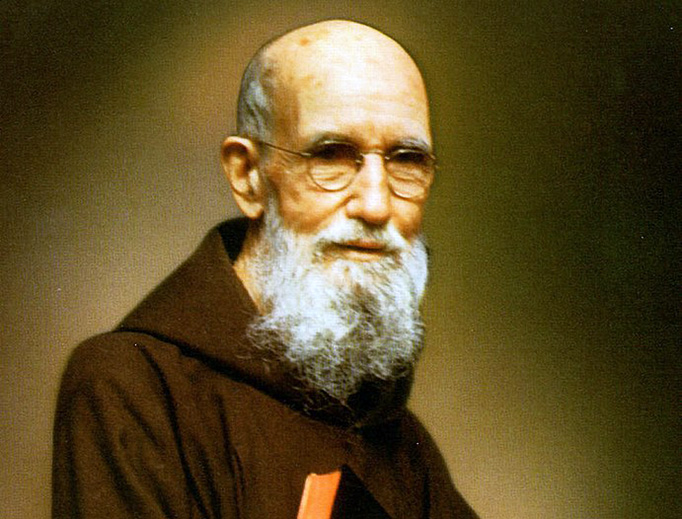Blessed Solanus Casey – American Starets
Blessed Solanus Casey is one of those rare saints who can truly be called a starets.

Today is the feast day of Blessed Solanus Casey, a favorite of mine. Growing up outside of Detroit, I first heard about his life from a good sister at my Catholic high school. As I continued along my spiritual journey to embrace the traditions of the Christian East, I never felt that my devotion to Fr. Solanus was out of joint. I always thought that this was due to the universality of the saints (and indeed it is) but the more I think about it the more I am convinced that Fr. Solanus falls very nicely into the category of a starets.
The term “starets” is used in Eastern Christianity (especially Russian Orthodoxy) to denote an “elder” or wise spiritual guide. We meet such characters in the great Russian spiritual work The Way of a Pilgrim and read the wisdom of the starsi (the plural of starets) in the Philokalia. The great spiritual elders were characterized by their asceticism, or hesychasm, as it is termed in the East. They had reached such a deep level of prayer that spiritual gifts flowed from them like streams of living water in a parched land. We read of their healings, locutions, prophecies and myriad other mystical gifts. One of the most important elements of the starsi was their accessibility. These guides were sought out by princes and the poor alike for spiritual counsel and requests for divine favors. Surely, all the saints have a great many of the characteristics of the starsi but I think Blessed Solanus Casey fits particularly into the starets mold.
First, let’s consider his asceticism and prayer life. Fr. Solanus was known to put all of his food into one bowl, so if the Friars were having spaghetti and ice cream for dinner, all of that was mixed together in Solanus’ bowl. This was surely an act of penance and humility. What of his prayer life? It was well-known to the Friars who knew him that he could often be found before the tabernacle, late at night wrapped in prayer. He was devoted to praying from his breviary and the Little Office of the Blessed Virgin Mary. His devotion to promoting the Holy Mass as the preeminent means of sanctification was well-known and because of his efforts, Mass stipends for the foreign missions fueled the spread of the Gospel throughout the world.
He certainly had spiritual gifts. There are numerous reports of healings, prophecies, and wise spiritual counsel given to thousands. I believe his spiritual gifts were the result of deep humility, which he learned through his life of trial and suffering. He was deemed too unintelligent to be a “full priest,” so he was ordained a simplex priest, a priest without the faculties to preach or to hear confessions. He had a weak and raspy voice from his childhood bout with diphtheria, which I’m sure left him open to ridicule. He had a love for the violin but played it poorly, which probably caused his fellow friars occasion to cringe and laugh at him. Yet all of these humiliations led him to the heights of profound humility and gave him the ability to approach everyone with compassion.
And oh, did they approach him. Often, the Russian starsi were isolated but so was Solanus. As the porter of the monastery, he was away from the hustle and bustle of monastic life. The door of the monastery became his monastic cell, his spiritual desert, and for those who came to visit him, an oasis of counsel. I think this is the primary connection between Solanus and the starsi – both were sought out by desperate people looking for living water amid life’s many droughts. The people of Detroit were thirsty and hungry during the Great Depression and received sustenance thanks to Fr. Solanus and the Capuchin Soup Kitchen. People with marriages on the breaking point were reconciled by his counsel and prayers. The sick were cured, often with his blessing with the relic of the True Cross. People on the brink of the self-destruction of suicide were brought back from the abyss. Countless reports of favors, countless people helped by his prayers and spiritual insights — and it is still happening today. Sixty-one years after his death, his tomb is a place of prayer and pilgrimage for thousands of people.
I truly believe that Blessed Solanus Casey belongs to that rare class of saint who can truly be called a starets. My prayer today on his feast day is that the Lord will call into His harvest countless starsi in the mold of Blessed Solanus, to guide the multitude of lost souls back to the Living Water of Jesus Christ.













